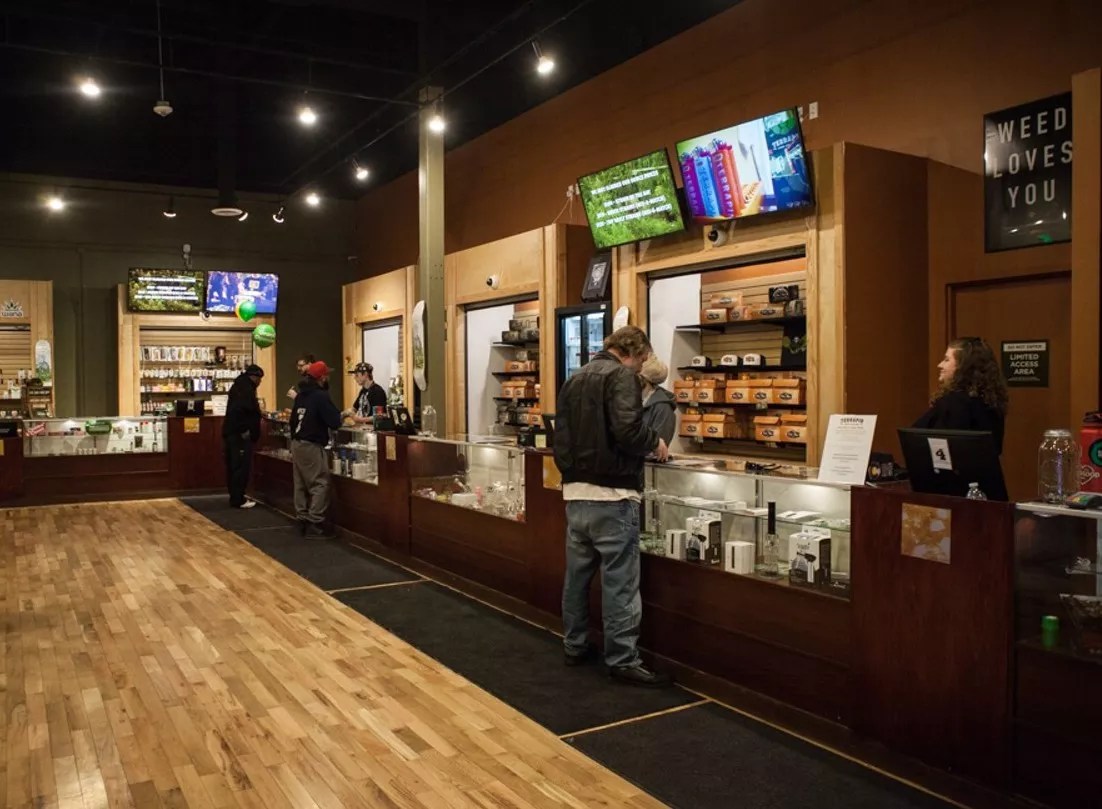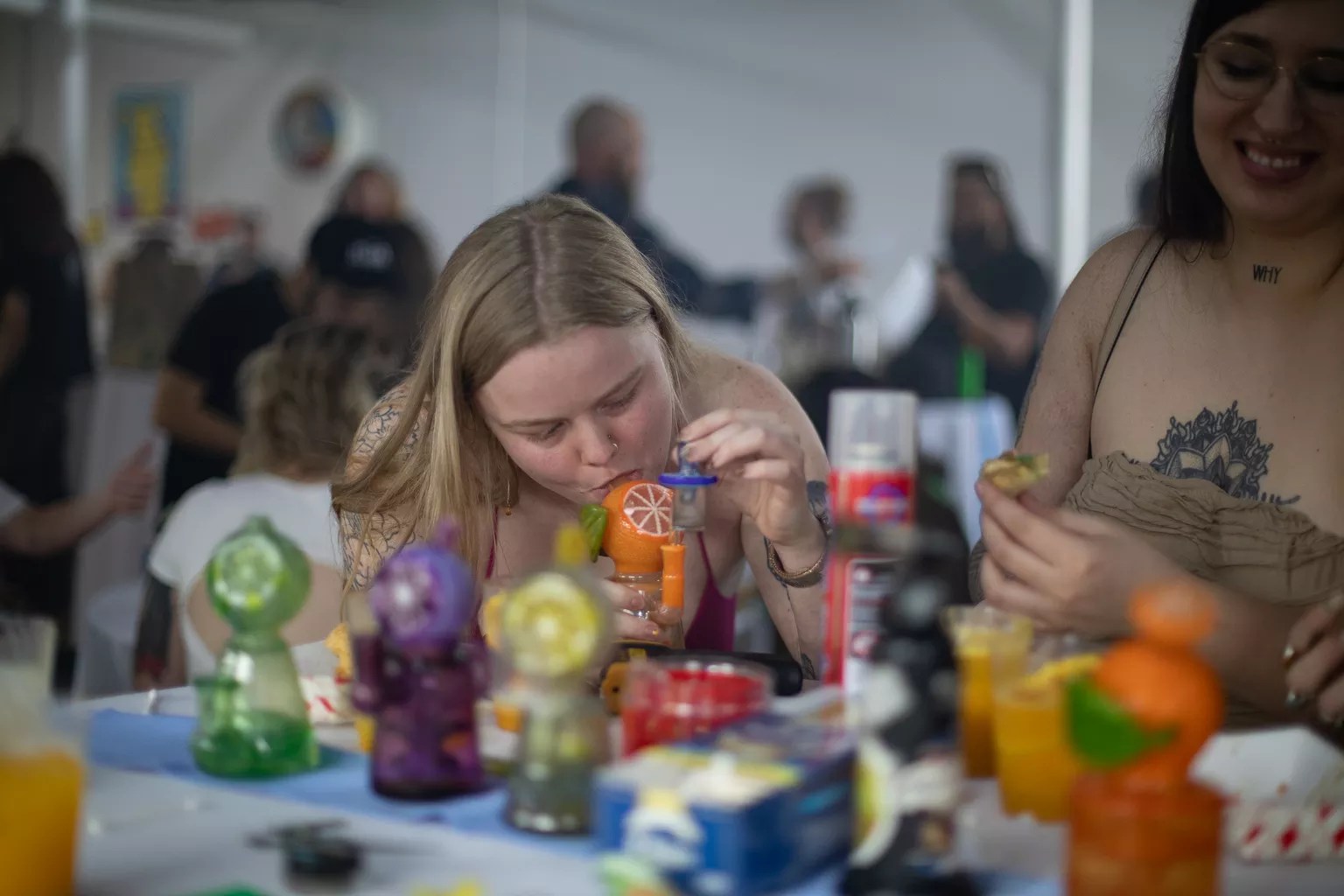
Evan Semón

Audio By Carbonatix
Lawmakers convened for the start of the Colorado Legislature on January 10, and they’re expected to have some serious marijuana and psychedelics issues on their hands this session.
Colorado voters legalized medical psilocybin and decriminalized other natural psychedelics just over a year ago, so mushroom conversations will remain a mainstay at the State Capitol for the foreseeable future – just as marijuana has been a hot topic since it became legal for adult use in Colorado back in 2012.
As lawmakers and government officials create new rules for psychedelics in 2024, they’ll be dealing with a much more evolved playing field in pot. Here are five psychedelics-related bills and discussions to expect at the state legislature this year.
THC Potency Caps
Battles over the potency of retail pot products have been simmering at the Capitol for over five years now, and they boil over into full legislative proposals every once in a while. In 2021, potency cap proponents attempted to pass a measure limiting all Colorado marijuana products, medical and recreational, to 35 percent THC. After months of back and forth with lawmakers and the pot industry, a bill limiting access to medical marijuana and extracted THC products eventually passed, but without any THC potency cap. The marijuana industry tried last year to push a bill rolling back some of those limits, such as daily purchase limits of extracted THC, but lawmakers quickly voted down the effort.
A handful of advocates for more guardrails on commercial marijuana, often led by groups Blue Rising Colorado and One Chance to Grow Up, continue pushing for more restrictions on THC potency and retail access, arguing that extracted marijuana products are contributing to a youth mental health crisis. Based on murmurs at the Capitol and continued complaints at state and local government hearings, another proposal aimed at THC potency caps or changes to the marijuana industry rulemaking structure is likely in 2024.

Dispensaries operate under different rules than more traditional retail operations, with tight restrictions on what is allowed to be sold.
Jacqueline Collins
Dispensaries Want to Be More Like Liquor Stores
It’s no secret that Colorado dispensary sales are down, marijuana prices are slowly climbing out of the basement and employers are struggling to retain workers. Although business owners and economic forecasts predict slight improvement over the next few years, the novelty has worn off Rocky Mountain marijuana, so several factions of the pot industry want to add non-infused snacks, drinks and other items to help boost dispensary sales.
Colorado pot shops are allowed to sell smoking devices such as pipes and joint papers as well as store merchandise, but
they are currently banned from selling tobacco or any consumable item that is not infused with THC, CBD or other extracted cannabinoids. But a bill that has been in the works for well over a year would allow dispensaries to sell convenience-store items such as Gatorade, chips and frozen food.
Liquor sales would be a definite no-go and tobacco sales unlikely, and any such bill would likely be opposed by youth protection groups. But a handful of dispensaries have shown a desire to expand their offerings, from lottery ticket sales to co-locating with gas stations, and leading voices in the marijuana industry have already noted that dispensaries now operate more like liquor stores than they do the cannabis co-ops of the early 2000s.
More Psychedelics Chatter
The state legislature passed the Natural Medicine Health Act, an extensive bill addressing Proposition 122, last year. It addressed several gaps in Prop 122, according to lawmakers, such as cultivation limits for psychedelic plants and fungi, as well as record-clearing programs for past possession of psychedelics and criminal penalties for the unlicensed sale or distribution of psychedelics.
That won’t be the last psychedelics bill in the Statehouse. Even as Senate Bill 23-290 advanced through the legislature last year, sponsor and Senate President Stephen Fenberg told the public and his colleagues to expect more. Lawmakers will have plenty of issues to choose from in 2024, including potential psychedelics possession limits and a more defined structure for psilocybin sales and facilitation, but nothing has been introduced yet.
Legislators might be waiting for the end of extensive rulemaking sessions with the state Department of Regulatory Agencies and Department of Revenue – the agencies responsible for regulating licensed, spiritual and commercial psychedelics – before introducing or advancing any bills. The DORA session has already been extended, and subcommittees are scheduled to meet through the end of 2024, while DOR rulemaking is set to end in June, with rules implemented in October. If cannabis legalization showed us anything, though, it’s that unanticipated criminal, societal and public health issues often arise as elected officials learn more about newly legal substances. And psychedelics are still very, very new to Colorado senators and state representatives.

Private events still account for the majority of cannabis-friendly hospitality in Colorado.
Jacqueline Collins
Hospitality Conversation Continues
Despite being the first state to legalize the plant for recreational use in late 2012, Colorado still hasn’t effectively established a licensed hospitality sector for marijuana. Social consumption licenses for businesses interested in allowing marijuana use weren’t created at the state level until 2019, and there are fewer than ten mobile lounges and other establishments now operating with hospitality licenses across the state.
In October, a small group of unlicensed marijuana event organizers and participants asked DOR officials to consider creating a new temporary pot consumption license for events, but they were told that creating a new consumption license would have to be done by the state legislature. Less than two weeks later, the department attempted to effectively ban unlicensed events across the state, but ultimately backed off after loud industry pushback.
Private marijuana event organizers and the pop-up business community have been meeting and discussing potential political efforts for the creation of temporary event permits allowing marijuana. They’ve been gathering in groups and are even chatting with cannabis lobbyists, but haven’t announced anything official yet.
And even if a proposal to allow temporary marijuana event permits doesn’t come this year, attempts to ban them at the state level or restrict pot brands from participating could be coming from the DOR or a sympathetic ear in the legislature.
…And So Does Social Equity
Colorado lawmakers began addressing social equity in the marijuana industry in 2020, crafting definitions and qualifications for preferential pot licensing for entrepreneurs from communities that were impacted by the War on Drugs. Since then, the Governor’s Office and a handful of local governments, including Denver’s, have followed suit, creating state and local programs to disperse technical help and grants for social equity businesses. However, Colorado’s pot industry is currently in a recession, and licensed social equity marijuana business owners have struggled to get off the ground.
State Representative Naquetta Ricks introduced a bill on the first day of 2023’s legislative session that would have updated the state’s marijuana social equity program, giving preferential marijuana delivery opportunities, cutting application costs for social equity licensees and creating incentives for established pot companies that provide assistance to new social equity businesses. The measure was opposed by the majority of the recreational marijuana industry, however, which led to drawn-out and contentious discussion at the Capitol and the bill’s eventual demise.
Marijuana social equity advocate and business owner Sarah Woodson said at the time that the measure “will be back next January,” and she wasn’t kidding. Ricks, along with fellow rep Regina English, introduced a bill similar to last year’s, but longer, on the first day of the 2024 session.